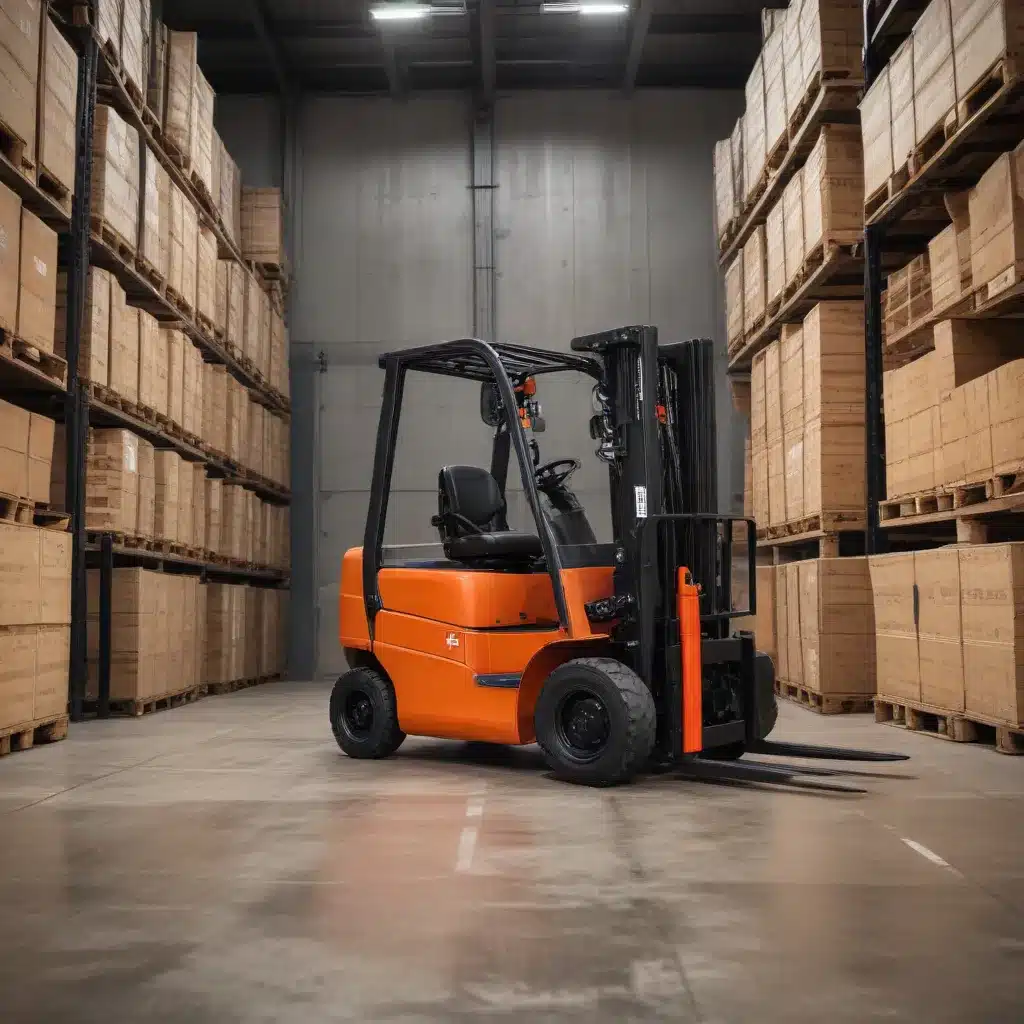
Navigating Supply Chain Uncertainties with Flexible Forklift Solutions
In an era of unprecedented supply chain disruptions, businesses must prioritize building resilience within their material handling operations. The COVID-19 pandemic has exposed the fragility of many lean supply chains, forcing companies to rethink their strategies and seek ways to enhance flexibility and adaptability.
As an industry expert well-versed in forklifts, warehousing, and logistics, I understand the critical role that a forklift fleet and operator management system can play in creating a more resilient supply chain. By harnessing the power of data and leveraging the right mix of forklift technologies, businesses can navigate unexpected challenges and keep their operations agile.
Unlocking the Power of Forklift Data
One of the most important steps in building forklift fleet resilience is to truly embrace the wealth of data available through fleet and operator management systems. In an era of volatile demand and unpredictable disruptions, data has become a vital asset for informed decision-making.
Gain Insights into Fleet Performance and Utilization
Forklift fleet and operator management systems can provide a treasure trove of data on how your material handling equipment is being used across your operations. This includes insights into operator productivity, product movement patterns, and equipment utilization rates. Armed with this data, you can make strategic decisions to right-size your fleet, optimize operator assignments, and identify opportunities for process improvements.
Leverage Data for Proactive Maintenance
Maintaining a well-functioning forklift fleet is essential for supply chain resilience, as unexpected equipment failures can grind operations to a halt. Forklift management systems equipped with predictive maintenance capabilities can help you stay ahead of potential issues. By monitoring battery health, wear-and-tear indicators, and utilization patterns, you can schedule proactive servicing to minimize downtime and ensure your forklifts are always ready to perform.
Harness Data to Drive Automation Strategies
As businesses seek ways to boost productivity and efficiency amid labor shortages and social distancing requirements, automation is playing an increasingly important role. Forklift data can help identify the ideal tasks and equipment for automation, allowing you to develop a strategic roadmap for deploying flexible automation solutions, such as dual-mode forklifts that can switch between manual and autonomous modes.
Diversifying Your Forklift Fleet for Agility
In addition to leveraging data, building a diverse forklift fleet is crucial for enhancing supply chain resilience. By strategically combining different forklift models and technologies, you can ensure your material handling operations have the flexibility to adapt to a wide range of challenges.
Optimize Warehouse Slotting and Density
As businesses face pressure to move products quickly while maintaining a compact facility footprint, the ability to go vertical in the warehouse becomes increasingly important. Invest in forklifts that can safely handle heavier loads at greater heights, allowing you to optimize your storage space and respond swiftly to demand fluctuations.
Embrace Flexible Automation Solutions
Dual-mode forklifts that seamlessly transition between manual and automated operation modes can be a game-changer for supply chain resilience. These versatile machines enable you to gradually introduce automation into your operations, without the need for extensive infrastructure changes or a fully integrated warehouse management system. By leveraging data insights, you can strategically identify the ideal applications for these flexible automation solutions.
Ensure Energy Efficiency Across Your Fleet
The power source of your forklift fleet can also impact resilience. Consider transitioning to lithium-ion batteries, which offer greater energy efficiency, longer runtimes, and reduced maintenance requirements compared to traditional lead-acid batteries. This can be especially beneficial in cold storage environments, where lead-acid batteries often struggle to maintain performance.
Embracing a Culture of Preparedness
Ultimately, building a resilient forklift fleet is not just about the equipment and technology – it’s also about fostering a culture of preparedness within your organization. By proactively addressing safety, maintenance, and training, you can ensure your material handling operations are ready to withstand unexpected challenges.
Prioritize Forklift Safety and Operator Training
Regularly review your forklift safety protocols and operator training programs to ensure they align with the latest industry standards and address any new procedures or requirements, such as those related to sanitization and social distancing. Empower your employees to be vigilant and take ownership of maintaining a safe work environment.
Implement Proactive Maintenance Practices
Resist the temptation to defer routine forklift maintenance, even during periods of heightened demand or disruption. Leverage your fleet management system to stay on top of servicing schedules and address any issues before they escalate into more significant problems. Partnering with your forklift provider for regular cleaning and maintenance services can also help streamline these critical tasks.
Foster a Culture of Continuous Improvement
Encourage a mindset of constant learning and adaptation within your organization. Regularly review your forklift fleet performance data, gather feedback from operators, and explore new technologies or strategies that can help you enhance efficiency, safety, and resilience. By fostering a culture of continuous improvement, you’ll be better equipped to navigate the unpredictable challenges of the future.
Conclusion: Building a Resilient Forklift Fleet for the Long Haul
In an era of unprecedented supply chain volatility, building a resilient forklift fleet is no longer a nice-to-have – it’s a business imperative. By harnessing the power of data, diversifying your material handling equipment, and cultivating a culture of preparedness, you can position your operations for long-term success, even in the face of unexpected challenges.
Remember, your forklift fleet is the backbone of your supply chain. By investing in the right systems, technologies, and practices, you can transform this crucial asset into a strategic advantage that will help your business weather any storm. Start your journey towards forklift fleet resilience today, and unlock the flexibility and agility you need to thrive in the years to come.
For more insights and practical tips on enhancing your forklift operations, be sure to explore the comprehensive resources available on Forklift Reviews. Our team of industry experts is dedicated to empowering businesses like yours with the knowledge and tools needed to build resilient, efficient, and future-ready material handling solutions.

